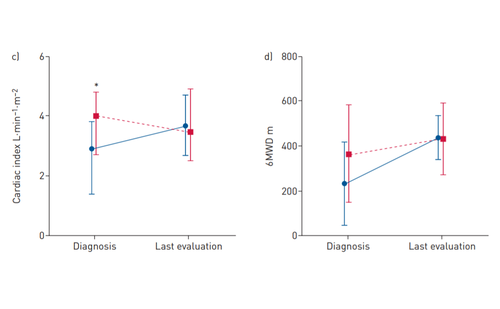A new study published in the ERJ has found that dasatinib-induced pulmonary arterial hypertension (PAH) persists in over one-third of patients after discontinuation of dasatinib treatment.
The study aimed to describe the long-term outcomes of PAH induced by dasatinib, an oral protein tyrosine kinase inhibitor (TKI) drug commonly used to treat various types of leukaemia. Although PAH is a rare side-effect of dasatinib, its estimated incidence is at least 0.45% in chronically treated patients.
Researchers assessed 21 patients with confirmed cases of dasatinib-induced PAH from the French Pulmonary Hypertension Registry and compared clinical and haemodynamic variables from baseline to last follow-up.
The most significant finding revealed that the majority of patients did improve after discontinuation of dasatinib, but seven out of 19 patients, or more than one-third, had persistent PAH when reassessed by right heart catheterisation (RHC) during long-term follow-up.
Additionally, 8 of the 19 patients (43%) continued to exhibit New York Heart Association (NYHA) functional class II/III symptoms despite discontinuation of dasatinib.
The authors propose that the persistence of PAH following discontinuation of dasatinib suggests that dasatinib can cause irreversible pulmonary vascular dysfunction and remodelling, but they also note that the majority of patients with dasatinib-induced PAH do normalise their haemodynamics in the long-term.
The researchers acknowledge that the retrospective nature of the study may present some weaknesses in the data, but suggest that the findings highlight the need for ongoing surveillance of dasatinib-induced PAH patients to help manage more severe cases.





